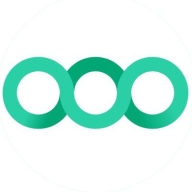

SonarQube Cloud and Semgrep are competing products in the code quality and security analysis category. SonarQube Cloud holds the upper hand in terms of community support and integration options, while Semgrep shines with its rule-writing flexibility.
Features: SonarQube Cloud offers detailed code analysis, a wide range of plugins, and a well-established ecosystem. Semgrep provides fast scanning speeds, ease of writing custom rules, and flexibility to tailor scans.
Ease of Deployment and Customer Service: SonarQube Cloud ensures a smooth deployment process through its cloud-based model, supported by a robust online community and technical support. Semgrep delivers straightforward setup, emphasizing quick deployment and implementation flexibility.
Pricing and ROI: SonarQube Cloud provides a tiered pricing model balancing cost and features, yielding high ROI for extensive integrations. Semgrep emphasizes cost efficiency, delivering solid returns for custom security rules and adaptability.


Semgrep is a tool for identifying vulnerabilities in code and ensuring code quality through static analysis. It is known for its efficiency, customizable rules, and seamless integration into CI/CD pipelines.
Semgrep aids developers in maintaining secure codebases by automating security checks and reducing manual code reviews. It is particularly valued for enforcing coding standards and discovering common security flaws early in the development process. Its ability to handle multiple languages and customizable rules, along with its open-source nature and active community support, make it a popular choice among developers. However, users have suggested that documentation could be more comprehensive, configuration more intuitive, and performance more optimized to better serve both new and experienced users.
What features does Semgrep offer?Semgrep is implemented across various industries for its effectiveness in maintaining secure codebases and automating security checks. In sectors like finance, technology, and healthcare, where code security is paramount, developers rely on Semgrep to enforce coding standards, reduce vulnerabilities, and comply with regulatory requirements. Its ability to handle diverse programming languages makes it versatile and suitable for different types of projects, from small startups to large enterprises.
SonarQube Cloud offers static code analysis and application security testing, seamlessly integrating into CI/CD pipelines. It's a vital tool for identifying vulnerabilities and ensuring code quality before deployment.
SonarQube Cloud is widely used for its ability to integrate with tools like GitHub, Jenkins, and Bitbucket, providing critical feedback at the pull request level. It's designed to help organizations maintain clean code by acting as a quality gate. This service supports development methodologies including sprints and Kanban for ongoing vulnerability management. While appreciated for its dashboard and integration capabilities, some users find initial setup challenging and note the need for enhanced documentation. The recent addition of mono reports and microservices support offers deeper insights into security and code quality, though container testing limitations and false positives are noted drawbacks. Manual intervention is sometimes required to address detailed reporting, with external tools being necessary for comprehensive analysis. Notifications for larger teams during serious issues and streamlined integration of new features are also areas of improvement.
What are the key features of SonarQube Cloud?In specific industries, SonarQube Cloud finds application in finance and healthcare where code integrity and security are paramount. It allows teams to identify critical vulnerabilities early and ensures that software development aligns with industry regulations and standards. By continuously analyzing code, it aids organizations in deploying secure and reliable applications, fostering trust and compliance.
We monitor all Static Application Security Testing (SAST) reviews to prevent fraudulent reviews and keep review quality high. We do not post reviews by company employees or direct competitors. We validate each review for authenticity via cross-reference with LinkedIn, and personal follow-up with the reviewer when necessary.